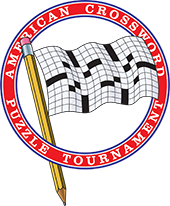A Puzzling Occupation: Will Shortz -- Enigmatologist
Source: ACPTDate: March 1998
Byline: unsigned
A Puzzling Occupation: Will Shortz -- Enigmatologist
What's an enigmatologist? It's Will Shortz, puzzle editor of The New York Times since 1993. He's the only academically accredited one in the world, having designed his own major program at Indiana University, which in 1974 led to his one-of-a-kind degree in enigmatology.Mr. Shortz also received a law degree from the University of Virginia. When he entered law school, he said, "my plan was to practice law for 10 years, make a lot of money, and then retire to do what I really wanted -- create puzzles." However, law was not creative enough for him, and after graduating, he skipped the bar exam and began his career in puzzles immediately.
Before joining The Times, Mr. Shortz spent 15 years as editor of Games magazine, a bimonthly devoted to puzzles and games of many kinds.
"What I especially like about being at The Times is the audience. The Times undoubtedly has the most intelligent, best educated group of solvers in the country, so I can presume a level of culture and solving skill that I couldn't anyplace else."
Succeeding the late Eugene T. Maleska, Mr. Shortz made modest modifications to the crossword, "but nothing radical." Constructor bylines were added to the daily puzzles; previously the contributors had labored anonymously. Also, the cultural references were broadened, with such modern subjects as movies, television and rock and roll being added to the classic puzzle vocabulary. "And I do like riddles, so there are more tricks and ambiguities in the clues now," he said.
Margaret Farrar, the first crossword editor of The Times (from 1942 to 1969), instituted the idea of having the puzzles become more difficult as the week went on. Monday's was the easiest, and Saturday's was, as she said, "a two-cups-of-coffee puzzle." Mr. Shortz believes he has "increased the slope of difficulty further, with Monday's puzzle now perhaps a bit easier than before, and the Friday and Saturday puzzles more difficult than they used to be. The goal is to have something for everyone, both beginners and veterans."
"Readers write in all the time," Mr. Shortz said, "mostly to tell me that they think they've caught a mistake." Rarely is there one. An exception several years ago involved the clue "mountain in sight of Darjeeling," for which the answer was EVEREST. Shortz had found in a reference book that Darjeeling was the nearest major city to the world's tallest mountain. But after the puzzle appeared, one person wrote to say he had been to Darjeeling and you couldn't see Mount Everest from there, as several other mountains intervened.
President Clinton is an avid solver of the Times crossword. At a technology conference early in 1997, the President discussed the previous Sunday's puzzle, "Technophobe's Delight," in which the clues included familiar vocabulary from the computer world, with the answers defining the terms in non-computer ways. For example, the clue "Mac" led to the answer BRITISH RAINCOAT. "Digital monitor" was a MANICURIST, and "Hard drive" turned out to be TIGER'S TEE SHOT. Mr. Shortz said, "The President is a very fine solver."
The puzzle that elicited the most response appeared on Election Day, 1996. The clue to the middle answer across the grid was "Lead story in tomorrow's newspaper." The answer appeared to be CLINTON ELECTED. Because of intentional ambiguity in the crossing clues, however, the answer could also have been BOB DOLE ELECTED. Either answer fit. For example, the crossing clue "Black Halloween animal" could have been either BAT or CAT, with the C for CLINTON or the B the start of BOB DOLE. "It was the most amazing crossword I've ever seen," Mr. Shortz said. "As soon as it appeared, my telephone started ringing. Most people said, "How dare you presume that Clinton will win!" And the people who filled in BOB DOLE thought we'd made a whopper of a mistake!
In addition to editing the weekday and Sunday puzzles for The Times, Mr. Shortz creates a weekly puzzle segment for "Weekend Edition Sunday" on National Public Radio. He is the author or editor of 23 puzzle books.
In 1978 Mr. Shortz founded, and remains director of, the American Crossword Puzzle Tournament, which will be held next in Stamford, Conn., April 3-5, 1998. He also founded the World Puzzle Championship in 1992. He remains captain of the U.S. team, which finished No. 1 in 1992, 1995 and 1996, and second in 1993, 1994 and 1997.

